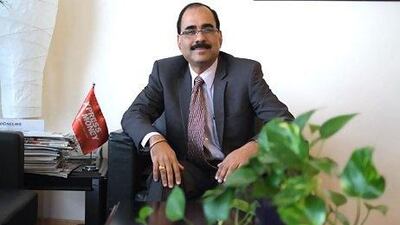Sudhesh Giriyan is the vice president of Xpress Money. His experience in channel management brought him to the money-transfer company a decade ago. Mr Giriyan oversees the company's network in 150 countries across 170,000 agent locations and says one of his dreams is to see XPress Money in every country by 2015. A native of the Indian city of Bangalore, he has lived in Dubai for 13 years.
How would you describe your financial journey so far?
It's been pretty steady so far. I plan things well and my extensive experience in the finance industry has made me smarter with my money than when I compare it with the early part of my career.
Are you a spender or a saver?
I would say it is a balance of both — I do spend on things, but also save a decent portion of my earnings. Indians as a community are much attuned to the idea of saving. So I too am very particular about balancing spending with saving. Moreover, as an expatriate, I believe in financial security and hence save for the future.
What is your philosophy regarding money?
It's all about striking a balance. One should know how to manage money well, be conscious about expenditure and do spend, by all means, yet also keep aside a good chunk to take care of future commitments and eventualities.
Did you make any financial mistakes along the way?
Fortunately I have hardly made any mistakes when it comes to money. Maybe my upbringing, education, calculated approach and relatively simple living had a lot to do with the fact that I avoided financial pitfalls that some expatriates struggle with.
Do you believe in planning for the future?
Yes I do. Saving for a rainy day is very important. When the active working days are over, one needs something to fall back upon and financial planning helps immensely in the long run. It is also required for taking care of the many responsibilities that one has — such as children's education, marriage and health care among other necessities.
What is your idea of financial freedom?
When one learns to strike a balance between one's savings with one's spending. When one can strike a balance between wants and needs is when one achieves financial freedom.
Is money important to you?
Yes, it is, from a financial security perspective.
What do you enjoy spending money on?
Mostly it would be eating out and clothes primarily. Typically, I spend a couple of thousand [dirhams] on myself every month.
* Sananda Sahoo

